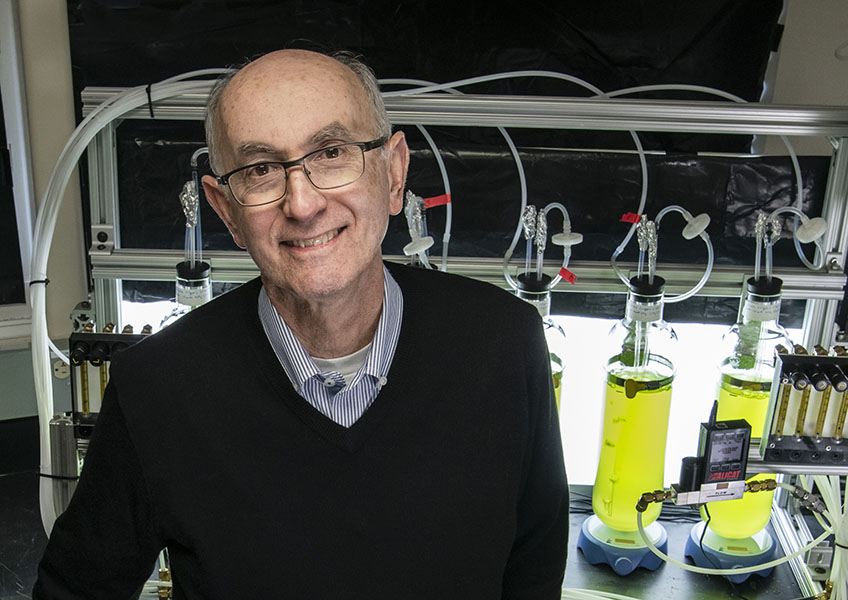Global 'Fashion for Good' Program Picks NREL's Pienkos to Participate

Phil Pienkos, who retired from the National Renewable Energy Laboratory (NREL) this month, already has his next project underway. He has been selected to participate in an international initiative called Fashion for Good that aims to bring sustainability into the fashion industry.
Based in Amsterdam, Fashion for Good this month selected Pienkos and a dozen others to join its accelerator program out of 21 invited to pitch their ideas. Over the course of this year, Pienkos and the others will receive “tailormade mentoring, guidance on impact assessments, access to industry expertise and market validation” from Fashion for Good’s partners, the organization announced.
Pienkos, who joined NREL in 2007, was strategic project lead at NREL’s National Bioenergy Center until his retirement. He is now an emeritus researcher at the laboratory. Pienkos holds a Ph.D. in molecular biology and previously started two companies.
Pienkos, along with Tao Dong and Lieve Laurens of NREL, is co-inventor of a renewable polyurethane made from lipids produced by algae as well as terrestrial crops. The product can be used for coatings and foam and has potential for complete biodegradation and even upcycling. The renewable polyurethane—non-isocyanate polyurethane (NIPU)—has attracted interest from outdoor manufacturers for use as a coating for tents and backpacks and a foam for backpack straps.
In addition to his role as NREL emeritus, Pienkos is now CEO of Polaris Renewables, which provides technical consulting in the areas of renewable fuels and chemicals. Pienkos is evaluating the opportunity to use the Fashion for Good accelerator as a platform to license the NIPU technology from NREL for commercialization.
“The Fashion for Good program will provide information to shape my plans in that area,” Pienkos said. “In addition, I’m hoping that the insights I gain from interacting with the Fashion for Good brands will help to shape future research at NREL to help position technologies for advancement towards commercialization, not just in NIPUs but in other renewable polymers as well.”
Last Updated May 28, 2025
